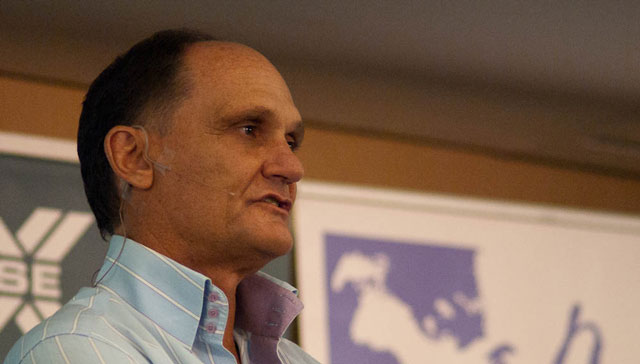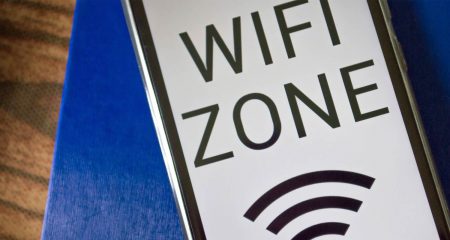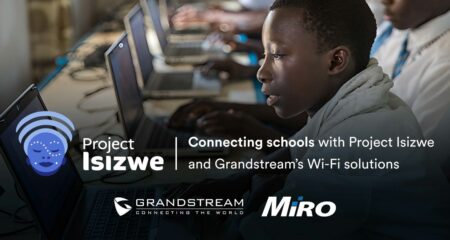
Wi-Fi networks, rather than those operated by mobile communications companies, will eventually be the predominant way that South Africans connect to the Internet, according to Alan Knott-Craig, the founder of the not-for-profit free Wi-Fi pioneer Project Isizwe.
Knott-Craig, a former CEO of iBurst parent Wireless Business Solutions, is confident Project Isizwe will provide almost universal coverage to residents of the City of Tshwane (Pretoria) in the coming years.
With the backing of Tshwane mayor Kgosientso Ramokgopa, Project Isizwe has already rolled out hotspots to more than 500 locations across Pretoria, offering residents 250MB/day of free data per device (that’s up to 7,5GB/month).
The company has managed to get the cost of data down to just 15c/GB, a level that mobile operators, with their high capital and operational costs can never achieve, says Knott-Craig.
Mobile operators still charge their customers up to R2/MB, or R2 000/GB, for ad hoc data.
“One of the lessons I learnt while at iBurst was that if you roll out broadband networks in the traditional way, you will never make money,” Knott-Craig says. “People just expect it to get cheaper every year. You have to get into a frugal mindset, and still do it in a carrier-grade way.”
Knott-Craig first made contact with Tshwane city officials through the ANC, by way of an investment he has in online current affairs website the Daily Maverick.
“[The city] bought into the idea of Wi-Fi, helped by the fact that we were willing to take some risk,” he says. “We now have capacity for just over 2m people, and have rolled out networks in places like Mamelodi, Ga-Rankuwa and Atteridgeville — all public Wi-Fi offering average speeds of 7Mbit/s and deployed at 15c/GB.”
As a nonprofit, Project Isizwe focuses aggressively on keeping costs down. As a result, says Knott-Craig, Tshwane can afford to subsidise the cost of the bandwidth so that citizens get free access.
Access to municipal buildings and other high sites has also helped keep costs down, as has a relationship with Neotel, which has provided low-cost access to its fibre network.
The Wi-Fi zones are typically connected via microwave backhaul to a high site in Faerie Glen in Pretoria, from where they connect further over Neotel infrastructure. “There’s no cannibalisation risk for Neotel, because we are going into areas that they never would,” says Knott-Craig.
He is convinced Wi-Fi is going to transform the telecoms industry. In the traditional model, a big company — Telkom, say — would invest R1m (or more) on a single base station. But in recent years, it’s become possible to deploy a carrier-grade solution, using Wi-Fi, at just R5 000 per site.
And because Project Isizwe is rolling out networks in underserved parts of Pretoria, there’s none of the interference in the Wi-Fi bands that often plagues the technology in upmarket areas.

“Wi-Fi takes the entire economics of the telecoms industry and changes it completely,” Knott-Craig says. “You don’t have to wait five years for your payback. There’s a reformation happening. 3G will always run in parallel … but Wi-Fi will be the base layer foundation.”
The problem is not coverage, he adds, but affordability. “3G costs too much. The only way you can solve that is by being frugal in network deployments, and the government needs to subsidise it.”
Data networks need the same level of investment as voice networks, he continues. “To get that extra 5% of quality [for voice] often leads to the cost of the network being 10 times higher. We don’t have to worry about that. You can’t keep the costs down if you have voice revenue, but if you are a pure data player you can’t get away with it.”
Popular
Not surprisingly, Pretoria residents have taken to the service.
An online television service launched by the city and piggybacking on the Wi-Fi network has proved particularly popular. Access is zero rated, so Wi-Fi users can watch as much video as they want without hitting their daily bandwidth cap.
Available at tobetsa.com, programming is put together by previously unemployed youngsters from Pretoria’s townships. Raw video is uploaded over Wi-Fi to Red Pepper Pictures in Randburg, where it’s edited before being published.
A recent video, on taxi fares, was downloaded more than 100 000 times in four days. The city pays for the service, but Knott-Craig says a revenue model may be developed later.
Obvious benefits of the free Wi-Fi include education and health care, he says. Job seekers also use the system actively, with popular jobs board Gumtree available outside of the bandwidth cap. Other websites that are zero rated include Wikipedia and the national school curriculum.
There’s still a lot of work to do to expand coverage in Pretoria. To blanket the city in Wi-Fi would need about 7 000 hotspots, he says. “Total deployment costs would be a couple of billion rand.”
But Knott-Craig is already thinking beyond South Africa’s capital city. Now that he’s proven the public-private partnership model in Pretoria, he wants to scale it.
“We want to find metros and smaller municipalities that want basic access to the Internet as a service. We can just copy the Tshwane model,” he says. “We are a nonprofit and that is the secret of our success. Government can contract far easier with a nonprofit.” — (c) 2015 NewsCentral Media




